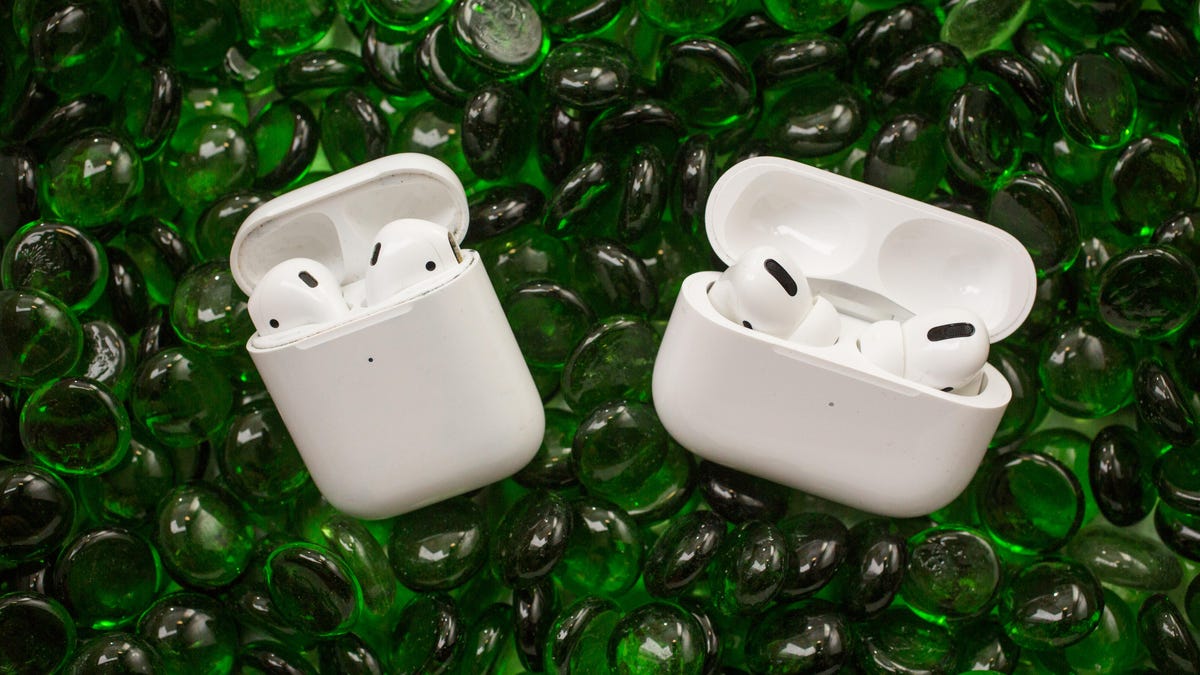
AirPods vs. AirPods Pro: Should you spend the extra $80?
The standard AirPods fit some people’s ears perfectly (some people have no trouble running with them), but plenty of people can’t get a secure fit. If you’re in the latter group, I highly recommend you spend the extra money on the AirPods Pro. The AirPods Pro design simply fits more ears than the original AirPods. I hesitate to call it a universal fit because there are always exceptions, but they’re close.
As noted, the only issue is that some people simply don’t like having silicone buds stuck in their ears, even if they’re as soft and pliant as these tips are. Also, some people are sensitive to the pressure sensation, albeit slight, that’s a byproduct of active noise canceling.
The first thing you notice about the AirPods Pro is that they simply sound better than the standard AirPods because they have more bass. The reason they have more bass is largely due to their new noise-isolating design and new drivers that are tuned for that design. The standard AirPods sound decent enough in quiet places but due to their open design, they just don’t do well when confronted with external noise — the bass frequencies get drowned out. The AirPods’ noise cancellation, which is effective, also helps with external noise, and the combination of the tips’ seal and the ANC means they sound much better in noisier environments such as city streets.
The standard AirPods are quite good for making calls. With the release of the second-gen model in 2019 — the ones discussed above — Apple improved their noise-reduction capabilities, particularly when it comes to wind noise. The AirPods Pro have three microphones on each bud, one of which is a beamforming mic that’s designed to pick up your voice. They also have similar noise-reduction capabilities, plus a vent system that’s not only supposed to relieve some of the pressure that can build up in your ear from a noise-isolating design coupled with noise-canceling features, but can help cut down on wind noise a tad, an Apple rep told me. More importantly, you can simply hear callers better because of the Pros’ noise-isolating design.
As noted, the AirPods Pro have an IPX4 water-resistance rating, which makes them splashproof and sweat-resistant, while the standard AirPods have no water-resistance rating.
Since the debut of iOS 14 in 2020, the AirPods and AirPods Pro offer automatic switching between Apple devices. However, only the AirPods Pro now have the “spatial audio” feature that simulates surround sound. It works surprisingly well when watching movies and television shows with video services that support the feature (many now do).


